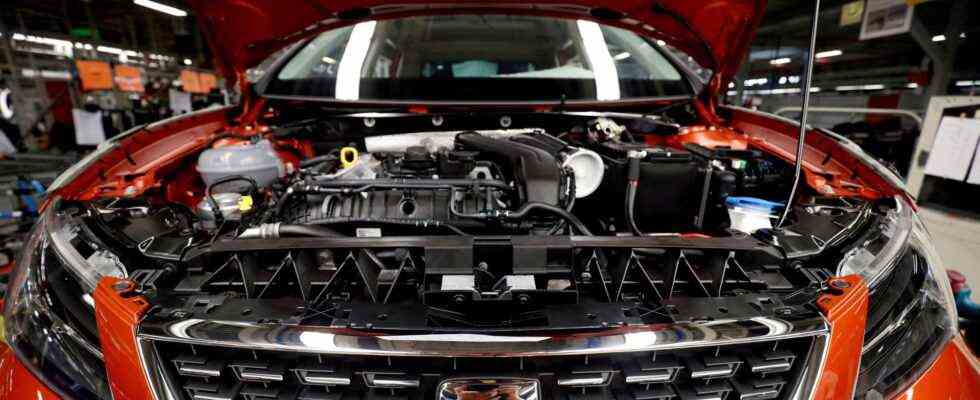Status: 08.11.2021 01:57
The global shortage of chips is a burden for automobile manufacturers. Spain is also particularly affected. When the production lines at the second largest car manufacturer in the EU come to a standstill, customers in Germany will also feel it.
Last June, many lines in Spanish car factories came to a standstill. Not for the first time this year. Previously, a lack of copper cables had already led to production downtimes in some factories. But now the global shortage of semiconductors has also hit the Iberian Peninsula.
For example in the Mercedes-Benz factory in Vitoria in the Basque Country: 4,500 Mercedes employees in Vitoria involuntarily took a week off. A similar picture at the locations of Seat in Martorell near Barcelona, the Opel parent company Stellantis in Vigo and Renault in Valladolid: everywhere yawning emptiness.
And it didn’t stop at the closings in June. Since then, productions have been temporarily interrupted because deliveries of computer chips were canceled at short notice. This has meanwhile also had an impact on the sales figures. In September alone, the production of cars in Spain fell by almost a third compared to the same month last year, around 180,000 cars were built.
Long waiting times for new cars
The situation is similar in Germany, where almost 210,000 copies were produced in the same period – 25 percent fewer cars than in September 2020. In Spain, car buyers currently have to wait longer for their new cars than usual, says Noemi Navas from the Association of Spanish Automobile Manufacturers. How long exactly is difficult to say.
Spanish media report waiting times for new cars of up to a year. That is why many customers in Spain are switching to used cars, which in turn is bad for the environment and road safety. The association spokeswoman asserts that the lack of chips also leads to job losses in the automotive sector, but she does not know anything about it.
Jordi Carmona, automotive expert from the UGT union, has completely different information: “In some cases there have already been layoffs. Some supplier companies have closed completely because they simply do not have the necessary financial reserves.” The Spanish statistics agency speaks of almost 20,000 lost jobs in the automotive sector. The fear: if the chip crisis continues, it could also have a significant impact on the Spanish economy as a whole.
Two million people work in the auto sector
Because every tenth Spanish employee works in the automotive industry, around two million people if you count workshops and car dealerships. The auto industry contributes eleven percent to the gross domestic product. The Spanish Automobile Association is trying to spread optimism, but is assuming that production will not recover to pre-crisis levels before 2023.
In Spain, on the other hand, there is better news from the electrification front, despite the chip crisis. Every tenth car built in Spain this year was an electric car or hybrid model. Sales are already above the previous year’s level. In Germany, electric cars already account for around a fifth of new registrations.
In order to promote the construction of e-cars in Spain, the VW subsidiary Seat is planning to build its own battery factory near its plant in Martorell near Barcelona, says Seat boss Wayne Griffiths. With batteries from their own production, Seat and VW would also be much more independent of the supply chains from the Far East. The problem with the microchips would still not be solved.
Chip crisis paralyzes automobile production in Spain
Nicholas Buschschlueter, ARD Madrid, November 7, 2021 11:21 p.m.

